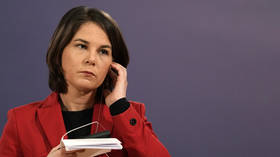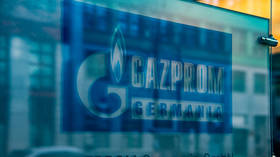Germany outlines why it won't ban Russian gas

German Foreign Minister, Annalena Baerbock has ruled out an import ban on Russian gas because the Berlin government does not believe that an energy embargo will make Russia end its military offensive in Ukraine.
“If imposing a full embargo tomorrow could stop this war then we would do it immediately. Such a ban would only drive the price of this war even higher. But it wouldn’t be able to stop the killing,” Baerbock opined in an interview with German broadcaster Tagesschau on Monday evening.
Berlin’s top diplomat has promised that European Union members will eventually give up energy imports from Russia but warned it will take time. She has promised that in the next few days Brussels will discuss the issue. According to Baerbock, the EU as a whole is working to become less dependent on Russian gas. A member of the Green party, she believes that a complete phase-out of fossil energy from Russia will be initiated in the near future.
Earlier the same day, the President of Germany Frank-Walter Steinmeier suggested that he had been wrong in his approach to Russia. “Me sticking with Nord Stream 2 [a now frozen gas pipeline] was clearly a mistake,” he said. “We held on to bridges that Russia no longer believed in and that our partners warned us about.”
Kiev’s Ambassador in Berlin, Andrey Melnik, however, said that Steinmeier’s remorse alone is not enough and called on the German president to impose stricter sanctions on Moscow. “The fact that Steinmeier has admitted his mistakes in Russia policy is the first step. But acts must also follow,” stated the Ukrainian diplomat.
Moscow attacked its neighbor in late February, following Ukraine’s failure to implement the terms of the Minsk agreements signed in 2014, and Russia’s eventual recognition of the Donbass republics in Donetsk and Lugansk. The German and French brokered protocols had been designed to regularize the status of those regions within the Ukrainian state.
Russia has now demanded that Ukraine officially declare itself a neutral country that will never join the US-led NATO military bloc. Kiev insists the Russian offensive was completely unprovoked and has denied claims it was planning to retake the two republics by force.













